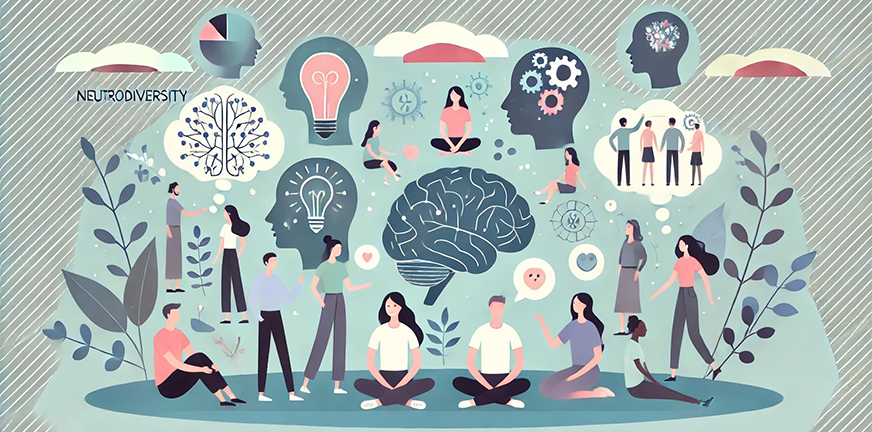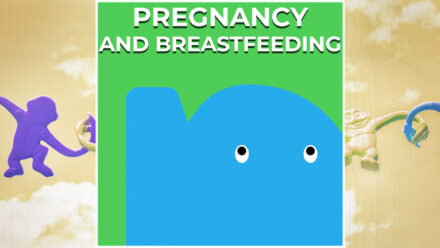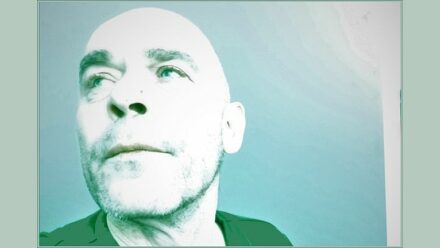
Understanding neurodiversity. In July 2024 I translated an article written by Professor Jim Van Os. Neurodiversity; what it is, how to get better at understanding neurodiversity, and why these two things matter so much.
We live in a world where everybody is unique. Of course, we all share similarities. For example, most of us have relationships (personal as well as professional), thoughts, and emotions. However, the way in which we navigate our way through our everyday lives varies greatly.
Most of us are aware that there is a certain way in which we are expected to conduct ourselves, and our behaviour and communication need to meet a certain standard. People who are neurodiverse often don’t have that awareness, and therefore can behave or act different from what us neurotypical people see as the “norm”, and rather than judge these people, or simply label them as mentally ill, I think it’s important we try to talk about our differences, so we can get better at understanding neurodiversity. Even for those of us who don’t personally know anyone who has a disability, because we all come across neurodiverse people at some point in our lives.
Understanding Neurodiversity: Two friends with lived experience
I talked to two close friends, who both have a son who is disabled and on the autism spectrum. Adelle, who has an eight year old son named Rowan, and Faye, who has a seven year boy old called Caelan. I’ve asked them questions about how they experience other peoples’ reactions, the support they receive, and what they would like to see changed. In this article I share their answers with you, in the hope this information will lead to a better understanding of, and more empathic approach to people with a disability, their families, and their friends.
Firstly I asked them if they could tell us a little bit about their childrens’ diagnoses and how it affects them.
Adelle
Adelle: My son has a rare genetic syndrome called Helsmoortel-Van der Aa syndrome, or ADNP. For him this means that he is globally delayed, has autism, sensory processing disorder, hypotonia, hypermobility and a gross motor disorder. Essentially, he needs more care than your typical 8-year-old. Everything takes him longer to figure out and navigate, therefore he is more vulnerable than his peers. He attends a special needs school with an emphasis on life skills as he has needed to be taught everything that the neurotypical world takes for granted including all forms of communication.
Faye
Faye: Caelan’s condition, Malan syndrome, presents numerous challenges. He has structural brain abnormalities, overgrowth, distinct craniofacial features, macrocephaly, learning disabilities, developmental delay, hypotonia, hypermobility, and vision issues affecting his optic nerves. His development has been slower in all aspects, particularly in speech and mobility. He struggles to complete most basic self-care tasks independently and often feels anxious around new people, especially children. However, with those he knows well, Caelan shows a much more outgoing social side.
He is incredibly sensitive to his surroundings; loud noises, playful shouting, or even something as ordinary as people singing “Happy Birthday” in a restaurant can be overwhelming for him.
Believing in labels, here’s why
Adelle: I am a firm believer in labels and diagnoses as without these we would never have been able to receive the support, early years interventions and his specialist education provision. I try to use the word disabled rather than special needs as much as possible and with pride as I feel it is more accurate. Everyone has skills and elements to them that make them unique and special, however it is a disservice to the disabled community to compare uniqueness with an inability to be able to access everything within the world.
I feel that most people are generally kind however as my child ages and his size increases, I have already noticed people’s patience and expectations of him changing. My son is more like a toddler with his interests and abilities however he is in the body of a tall 8-year-old. When a toddler has a tantrum society expects and accepts it, but older children are not given the same grace.
I think it is very hard for people to truly understand unless they have lived experience with the disabled community and even then, you only really understand what you have lived. Most people are kind and understanding but as a parent it is the bad experiences that stay with me and cause me to worry about the future. I try to educate the general public as much as possible when taking my son out but I long for the day when this is not needed, as that will then be a place of true acceptance.
Oblivious to surroundings
Faye: Fortunately, I haven’t had many difficult interactions with others. In the midst of challenging moments with Caelan, I’m so focused on keeping him safe and helping him regulate his emotions that I often become oblivious to my surroundings. One particularly tough episode occurred when Adelle was with us.
After a morning out, Caelan reached his sensory limit. In seconds, he went from being a happy little boy to one who was completely overwhelmed and unable to manage his emotions. It took both of us to get him safely to the car and back to a calm state.
Whenever we are in public, I try to have Caelan wear his sunflower lanyard (a sunflower lanyard indicates that the wearer of it may have a hidden disability) so people can see that he needs extra support. Although I didn’t notice anyone staring that day, I know there are times when we do receive judgmental looks, and those can be quite difficult to handle. We try not to dwell on them though; after all, we have enough to worry about!
To be continued next week





Comments: